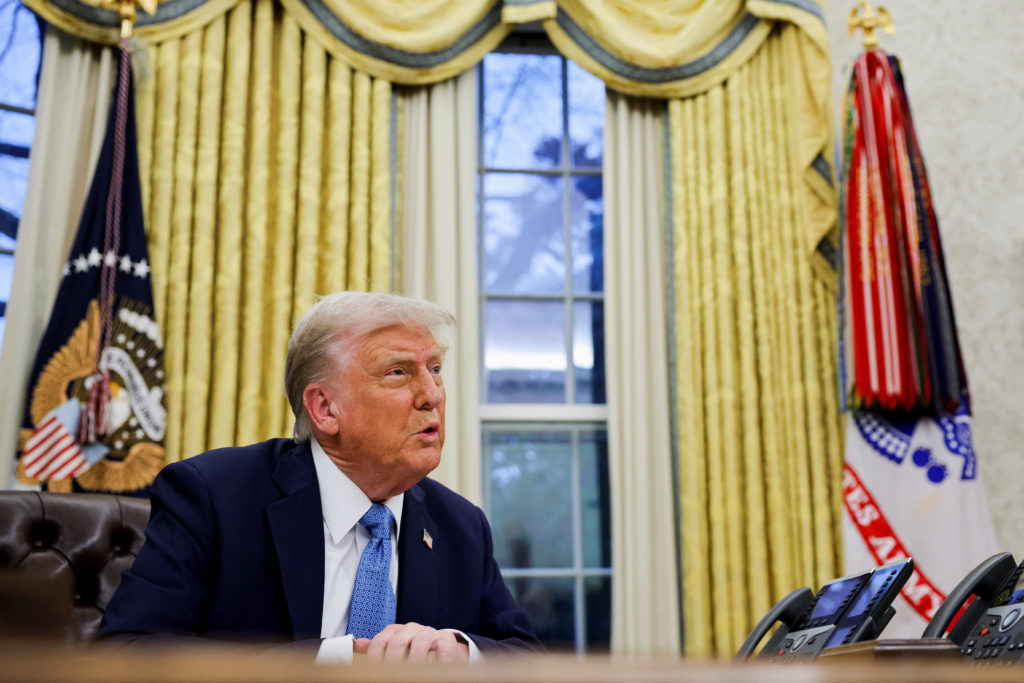Global markets experienced significant turbulence on Monday as President Donald Trump’s sweeping new tariff announcements rattled investors and sparked concerns of an impending trade war. The measures, which will affect more than 40% of U.S. imports, represent the most extensive tariff implementation in nearly 100 years.
The president’s plan includes a 25% tariff on imports from Canada and Mexico, despite existing trade agreements renegotiated in 2019. Energy products from Canada will face a lower 10% duty, matching similar charges imposed on Chinese goods. Trump has also indicated that European Union nations will “definitely” face upcoming tariffs, citing his authority under the International Emergency Economic Powers Act.
Financial markets reacted strongly to the news, with U.S. equity futures showing substantial declines. The S&P 500 indicated an 85-point drop, while the Dow Jones Industrial Average prepared for a 550-point decline from Friday’s closing figures. Technology stocks faced particular pressure, with major players like Nvidia, Tesla, Apple, and Alphabet all experiencing downward pressure.
The U.S. dollar index surged to its highest level in two years, reaching 109.506, as investors sought safe-haven assets amid growing trade tensions. Oil markets also saw significant movement, with WTI crude futures climbing $1.86 to reach $74.40 per barrel, reflecting concerns about disruptions in North American energy trade
relationships.
International reaction was swift, with China announcing plans for “appropriate measures” against U.S. goods and preparing a World Trade Organization legal challenge. Canada has already outlined retaliatory tariffs, while Mexico is formulating its response. Market volatility spiked, with the CBOE’s VIX index jumping 25.4% to $19.87, suggesting expectations of significant market fluctuations in the coming weeks.
Global markets reflected similar concerns, with European indices showing significant losses. The Stoxx 600 fell 1.43% in Frankfurt, while London’s FTSE 100 declined 1.25%. Asian markets were
particularly hard hit, with Japan’s Nikkei 225 dropping 2.66% and the MSCI ex-Japan benchmark falling 2.16%.
Trump addressed potential economic impacts, acknowledging there might be “some little pain” in the short term but maintaining that the United States has historically been “ripped off by virtually every country in the world.” However, economic experts warn of broader implications. ING’s senior economist for global trade, Inga Fechner, cautioned that if trading partners follow through with their threatened retaliatory measures, the global economy could face unprecedented trade tensions, resulting in negative outcomes for all parties involved.
The market response highlights growing investor concerns about the potential impact of these tariffs on global trade flows and economic growth. The volatility index’s current level suggests traders are preparing for daily S&P 500 movements of approximately 1.24%, or 75 points, over the next month, indicating significant market uncertainty as the international community grapples with this major shift in U.S. trade policy.
The comprehensive nature of these tariffs, combined with the swift and decisive responses from major trading partners, suggests that global markets may face continued volatility as countries adjust to this new trade landscape and investors reassess their positions in light of changing economic conditions.

